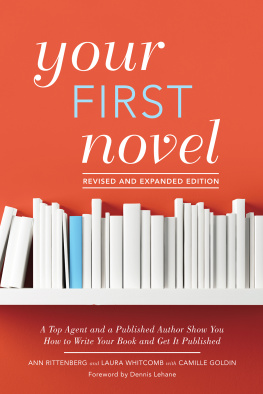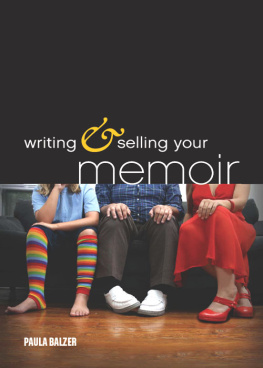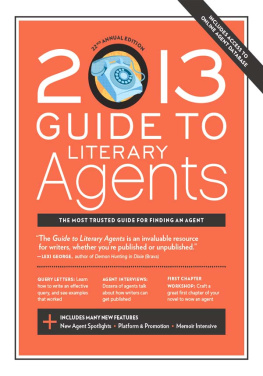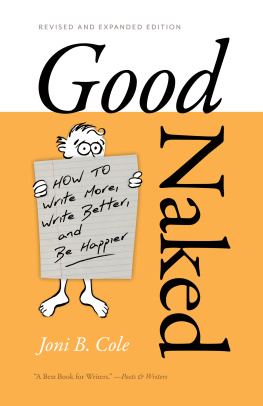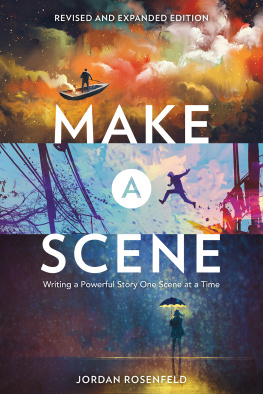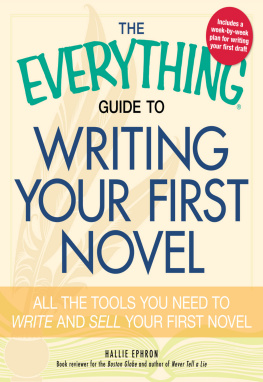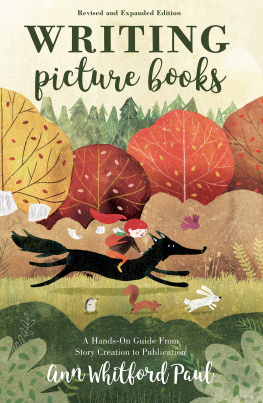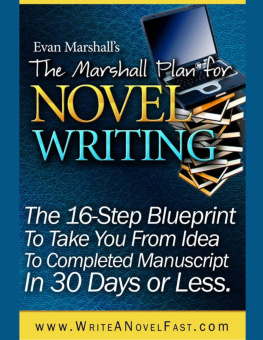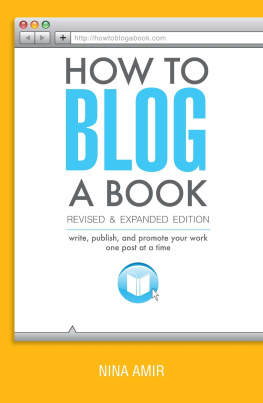Contents
Guide
Your
First
Novel
REVISED AND EXPANDED EDITION
ANN RITTENBERG and LAURA WHITCOMB with CAMILLE GOLDIN
Foreword by Dennis Lehane

WritersDigest. com
Cincinnati, Ohio
dedication
LAURA: For my sister, Cynthia, who made the writing life impossible to resist. And to my son, Robinson, who is everything.
ANN: To my father, John Raymond Garman, whose passion for books has inspired me for a lifetime.
Table of Contents
Foreword
I decided to become a fiction writer when I was twenty. An odd choice, believe me. Where I grew up, storytelling was something you did in bars, not a career option. Working for a utility was a careergood benefits, nice pension, and it was really hard to get fired. But writing? It just wasnt done. But after Id dropped out of two colleges and my parents were losing patience and probably the hope that Id ever amount to anything, I took stock of myself and realized two very important things:
- Writing was the one thing I always loved doing that I was actually good at.
- I sucked at everything else.
Sad, but true. I have no other marketable talents. I played a few sports well, but other kids played them demonstrably better. I dreamed of being a pilot or a doctor, but Im terrible at math and dont particularly like science. I considered becoming a journalist (safety-major number one, college number one) but discovered I wasnt fond enough of facts (dropout number one). Next I decided to become an English professor (safety-major number two, college number two) but discovered that while I did indeed love reading books, I didnt much enjoy talking about them (dropout number two). So I took a big breath and went off to my third college to major in creative writing and hopefully make a living telling stories.
It sounds so heartwarming in retrospectthe young lad off to make his fortune with nothing in his pockets but some lint and a dream. How Algeresque, how American. The truth was, though, I was petrified. No one did this. The people I grew up with became electricians, firemen, social workers, cops, contractors; some even got rich but no one became a writer. So there I was, 1,300 miles from home, terrified, but also certain that there was no going back. Third college, third major, three strikes, youre out. One night I went back to my dorm room, wrote the following on a piece of paper, and taped it above my desk:
No one cares.
It sounds so cold. It looks cold. But it wasnt meant that way, not entirely. What I was telling myself was that if I failed, no one would care. If I never published, no one would notice. If I never fulfilled my dream, it wouldnt make a bit of difference to anyone else on the planet. No one cares meant no one was watching, no one was keeping score, no one was judging. I was free. Utterly (and at times, it seemed, inconsolably) free. And that purified the writing process; it made it about the words and me. Thats itnothing else in the equation.
The words and you. Thats all this is about. If youre reading this, you must have made some kind of decision to become a writer. Good. Congratulations. Right about now youre probably composed of equal parts terror and courage, and I commend you on the latter because it is not easy to think you have something to say to the world. Or to think the world might want to hear it. Thats a tall order. As to the terror, remember that its about the words and you. Hemingway said it was a matter of writing the truest sentence you know. You then follow that true sentence with another and so on. The late short story writer Andre Dubus used to read his drafts into a tape recorder and play the words back to himself until they had achieved the sound of fork tines against a wine glass, whereupon he knew the story was ready to send out. Successful writing entails more than the sound of the words or even the truth of themit entails depth of character, depth of insight and structure, authentic dialogue, and a certain sense of dramatic inevitabilitybut the foundation is the words. And you.
Think about it: You have never existed in the world of literature before. Your voice, your vision, your unique stamp. Ive read or seen a few hundred Westerns, but I felt as if I were discovering the form for the first time when I read Cormac McCarthys Blood Meridian. This country has the South, and then we have Flannery OConnors South. Ive read Nadine Gordimers and J.M. Coetzees novels of South Africa, and they are equally indelible, yet neither could have been written by the other. In great writing, the teller and the tale become so inextricably linked that to attempt to discern where one begins and the other ends is to court farce. So the next time you look in the mirror and think of your own writing, remember that the face staring back at you is your most potent weapon. Its the thing you bring to the table that no one else can.
So now that Ive made you feel good, let me deliver some different news: Wanting it and earning it are two totally different things. You are to be commended for even attempting to travel a road as potentially heartbreaking and forlorn as the one the aspiring writer travels. But once the commendations are given, the work begins. You roll up your sleeves, and you learn how to write. And that takes time. And toil. Too often aspiring writers ask, How do I get published? (Often the ones who ask this are the last ones who should. Theyre akin to a first-year med-school student who asks, When do I get to perform an angioplasty?) The answer to How do I get published? is simple, not easy, but simple: Learn how to write well.
If you learn how to write well, you will get published. The cart follows the horse. Simple. Not easy, mind you, because the learning is hard. It separates the men from the boys, the women from the girls, the authentic from the poseurs. If you are writing merely to get published and you equate publishing with seeing your name in lights, with adoration, with your very self-worth, you are writing for the wrong reasons. E.L. Doctorow has said that a writers duty is to be true to the times in which he lives. David Mamet, in his book on craft, Three Uses of the Knife, says that the duty of art is to celebrate truth. Not triumph, not order, not the status quo, just truth. And the truth hes talking about is the organic truth of the work itself, the truth that you, through the creation of your narrative, discover and raise up to the light of day.
Now while that may sound portentous or even pretentious, it is the job. If not, why else are you writing? There are hundreds of easier ways to make money. Thousands of better methods by which to self-actualize. Millions of less taxing ways to entertain oneself. You should write because you cant not write. You should write because some stray scrap of your soul is trying to manifest itself verbally. You should write because story is your preferred method by which to make order out of the chaos we call existence. You should write because even though the process terrifies you, the absence of that process terrifies you more. Which is to say, you have to love it. Unconditional love and, often, unrequited. There is no guarantee it will love you back. No guarantee youll ever make a living at it. No guarantee that anyone but you and yours will ever see your words. Thats why it cant be about anything temporalthe publishing, the parties, the name in lights. Only the words. And the truth you find in them.

